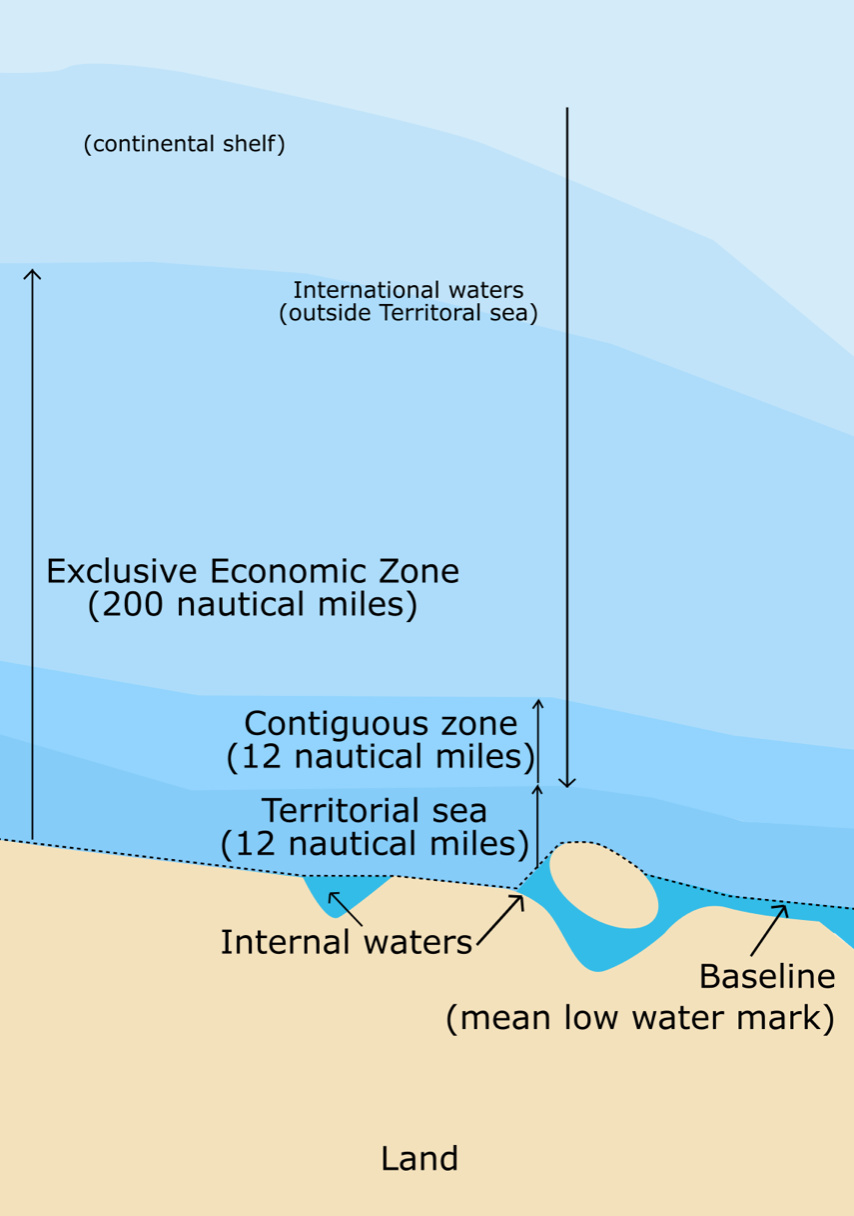
The different maritime zones (aerial view) embedded in the United Nations Convention on the Law of Sea (UNCLOS) which has become a legal framework on maritime issues since the Montego bay convention was signed in 1982. Picture: Wikipedia.
Part Two. American sea power. A case study: the South China Sea.
TG2 on January 18. No class for the TG4/5 on January 20 (Azimut forum).
➣ New subject on UNCLOS and the South China Sea (annotated version, TG2).
 Ordre de passage pour les oraux blancs du deuxième trimestre, du 30 janvier au 3 février 2023.
Ordre de passage pour les oraux blancs du deuxième trimestre, du 30 janvier au 3 février 2023.
3 | What is UNCLOS and why does it matter?
The raison d'être of the UNO is to prevent wars from happening. UNCLOS is a framework that provides a clear delimitation of territorial waters (12 nautical miles from the shoreline) and of the exclusive economic zone or EEZ (200 nautical miles from the shoreline).
In some circumstances, however, this delimitation becomes more complicated. Especially when the available space is under those limits, like in the Aegean Sea between Greece and Turkey, or in the South China Sea. Another problem is that the USA chose not to join UNCLOS. This is typical of the American reluctance to get involved in multilateral agreements. As a consequence, some countries, like China, blame the US for asking them to abide by a treaty to which they have refused to subscribe (see the above subject and point 4 below).
-
The Philippines have brought their dispute with China before the Permanent Court of arbitration (PCA) of the Hague which has rejected the Chinese claims in the SCS. China, in turn, has declared that the PCA was incompetent in that case. The dispute epitomizes the reality of international relations: on the one hand, there are conflicting powers, most of the time willing to use force to achieve their aims. We may think of Russia in Ukraine, but also of the USA invading Iraq without being endorsed by the UN in 2003. On the other hand, there are institutions like the UNO and the PCA. They may not always prevail, they nevertheless exist and, over the years, gain momentum.
Both China and the US refer to UNCLOS. They pretend to abide by international law. But they do not agree on the interpretation of the law. In the SCS, the Chinese claim territorial waters and an EEZ based on their assumption that the Paracel and Spratly islands (which they call Xisha and Nansha) are theirs. That's the meaning of their unilaterally announced “nine-dash line”, which encompasses most of the SCS. The USA rejects those claims. It argues that the PCA does not recognize the legitimacy of Chinese claims. But the USA's decision not to join UNCLOS weakens its position because it lacks consistency: why did the US abstain from joining UNCLOS if it considers it so important ?